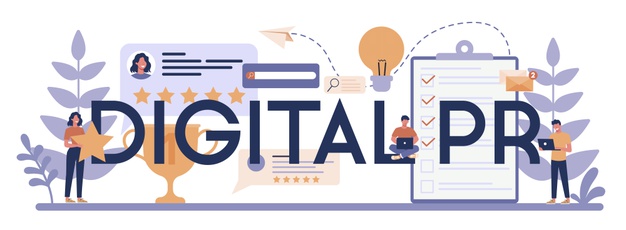Introduction
- Do you know if done in the right fashion, Digital PR can help a brand in several different ways from sales to branding?
- Are you looking to pursue a Digital PR strategy but do not want to make some of the most common mistakes?
- Have you tried listening to the advice of some of the leading firms and thought leaders in the field of Digital PR?
In the last few years, more and more brands want to pursue a Digital PR strategy in an aggressive manner. It needs to be pointed out that the needs and requirements of every business are not the same as Digital PR.
This means that a one-size-fits-all strategy does not work when it comes to Digital PR. In this article, we speak to some of the leading names in the PR world and ask them about five common mistakes, which brands should always look to avoid.
Digital PR: What is it?
Digital PR refers to a set of online marketing activities and strategies pursued by an individual or a brand with the following expectations-
- Increasing the sales, revenues, and profits of a brand
- Establishing and building relationships with existing and prospective target audiences
- Creating collaborations and partnerships with journalists
- Building brand exposure and visibility in its relevant niche
- Attempting to become a thought leader in the industry
Whether it is search engines or social media, or press releases, digital PR covers almost all platforms. With the rise in the number of consumers searching for brands online, digital PR is also strongly linked to a brand’s reputation management.
List of 5 Most Common Digital PR Mistakes
1. Not establishing relationships with Smaller Publishers-
Many brands make the mistake of trying to establish and build relationships with only the big publishers. They do this because of the increased traffic on big platforms helps brands. However, if you start building relationships with smaller publishers, when they become bigger, they will not forget your favor. Brands should look to strike a balance.
2. Not paying attention to the quality of the Content-
Sometimes, brands end up spending so much time, energy, and money in making contact, negotiations, and getting the deal done that they fail to focus on the content. This is one mistake, which should be avoided under all circumstances. You should always ensure that content takes priority over everything else in your digital PR efforts.
3. Not fixing Objectives or KPIs?
Doing Digital PR just for the sake of it is not going to help you in any way. There should always be a strategy and a campaign, to help achieve some objectives. This means that brands should fix what they are trying to achieve from the digital PR efforts. This will help give the campaign a direction and make everyone understand what they are after.
4. Blindly believing in the Publisher-
Remember how the Influencer Marketing scam rocked the industry in early 2019? It was found that nearly all major influencers were paying for their followers and engagement. Brands have lost billions of dollars believing in the profile of influencers blindly. Make sure to verify and research everything before you proceed with the publisher. This will protect your investments.
5. Not taking help from Innovative Strategies and Technologies-
It is important to innovate and think-out-of-the-box at times. If you are not doing the same, you stand the risk of becoming obsolete because of following all the old strategies. Run something new and use CRM tools and data to inform your decision-making process. Without using the latest technologies or strategies you cannot expect your digital PR to perform in a certain way.
The Final Word
Making experts state that being successful at Digital PR is an art. This is the reason why some brands are tearaway success when it comes to this, while others are not. If you follow the article, you will be able to save yourself from committing five mistakes that will ultimately contribute to making your digital PR successful.
Read Also:






















